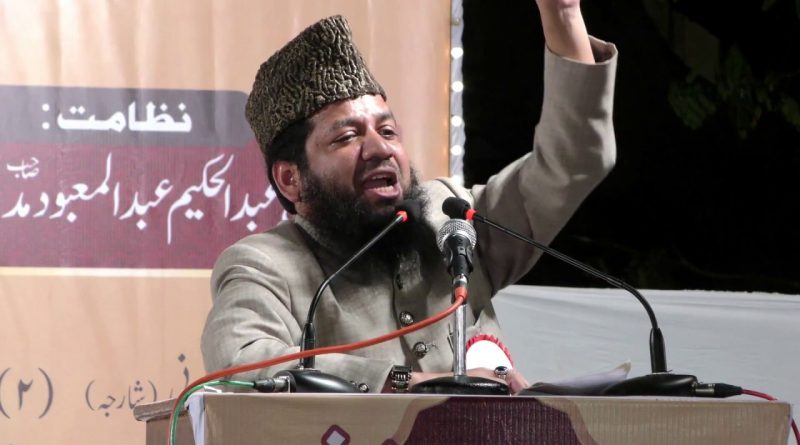Indian Salafi Scholar Rejects Street Protests on Waqf Bill, Urges Legal Battle
New Delhi — Amid growing protests against the Waqf Amendment Bill in India, Salafi Scholar Shaykh Mohammed Rahmani, chief of the Abul Kalam Azad Islamic Awakening Centre in Delhi, has rejected street demonstrations as a means of opposition, calling instead for legal and formal methods of protest.
The statement came in response to the participation of Jamiat Ahle-Hadees in the protests organized by Majlis Ittehad Al-Muslimeen’s supremo Asaduddin Owaisi in Hyderabad on 19th April 2025.
Speaking to followers and responding to public inquiries, Shaykh Rahmani clarified that the Salafi approach does not support taking grievances to the streets, disrupting public order, or causing inconvenience to the wider community.
“Street protests, road blockades, and creating unrest are not permissible according to the Salafi methodology,” Shaykh Rahmani said. “What is happening in Hyderabad is the responsibility of those involved. We do not endorse such actions.”
He explained that while the Muslim community’s concerns about the Waqf Amendment Bill are serious and legitimate, the method of voicing opposition must be disciplined and lawful.
According to Shaykh Rahmani, actions that disrupt the daily lives of ordinary citizens, damage public property, or incite confrontations are not in line with Islamic principles of wisdom and responsibility.
Instead, Shaykh Rahmani outlined a structured process for registering dissent within the Indian legal framework. He urged community members to lodge formal complaints at local police stations through responsible representatives, draft memorandums addressed to high-ranking officials such as the Minister of Home Affairs and the President of India, and, if necessary, pursue remedies through the courts.
“Our responsibility is not to create chaos but to formally and lawfully register our protest,” he said. “Damaging public assets, wasting time meant for education and worship, and risking arrests and family breakdowns are not acts of wisdom.”
Rahmani also warned that emotional responses and disruptive protests could have unintended long-term consequences for the community. He stressed the importance of self-reflection, organization, and strategic engagement with the legal system rather than reacting impulsively.
“Yes, we are distressed. Yes, there are problems,” he said. “But the solution lies first in introspection and then in organized, lawful methods such as filing memorandums and seeking justice through the judiciary.”
The Waqf Amendment Bill has stirred strong reactions across parts of India, with Muslim organizations expressing fear that the changes could adversely impact Waqf properties, traditionally reserved for religious and charitable purposes. While some groups have chosen street demonstrations to voice their opposition, Shaykh Rahmani’s comments represent a significant voice within the community calling for a more measured, lawful response.
As the political and social debate over the Waqf Amendment Bill continues to unfold, Shaykh Rahmani’s intervention underlines a key tension within the Muslim leadership — whether to resist perceived injustices through public protest or through legal and institutional channels.
His call for wisdom, discipline, and responsibility offers an alternative model of civic engagement at a time of heightened communal sensitivity in India.



